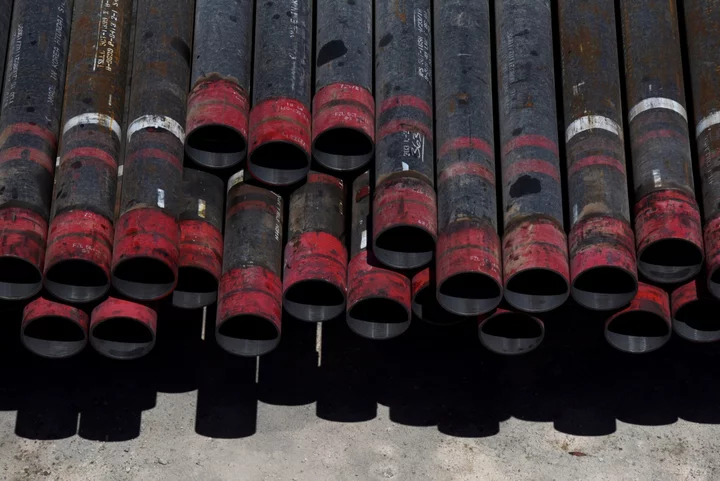
Appeals Court Blocks Biden Bid to Limit Oil Drilling Auction
A federal court left in place an order forcing the Biden administration to expand an upcoming sale of
2023-09-26 11:57
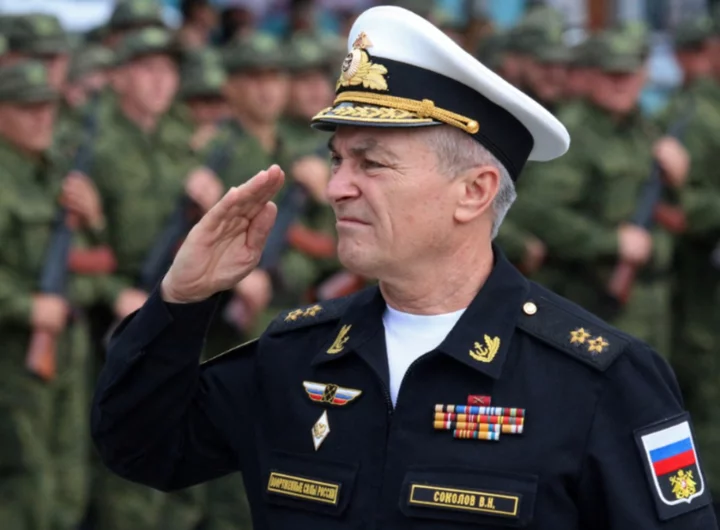
Ukraine-Russia war – live: Putin’s Black Sea fleet commander ‘killed in attack on Crimea navy HQ’
Ukraine have claimed that the commander of Russia’s Black Sea fleet, Admiral Viktor Sokolov, was killed in the missile strike on Sevastopol on Friday. The Ukrainian Special Operations Forces said in a social media update on Monday that he was among the 34 killed during the missile strike of the Black Sea fleet headquarters. They also claimed that 105 other occupiers were injured. The Russian defence ministry initially said that Friday’s strike killed one service member at the Black Sea Fleet headquarters, but later issued a statement that he was missing. They have not yet commented on the latest claims. Kyiv launched the missile attack on the fleet based in the port city of Sevastopol in occupied Crimea on Friday morning. Ukrainian officials said the attack, targeting what is believed to be the best of Russia’s navy, was timed to coincide with the naval commanders’ meeting. On Saturday morning, it followed this up with another missile attack on Sevastopol, according to a local Russian-installed official. The strike sent plumes of black smoke billowing from the building. The special forces added that: “The headquarters are beyond repair.” Read More Putin’s Black Sea fleet commander ‘killed in navy attack’ as Ukraine breakthrough triggers ‘panic’ Tucker Carlson denies rumour he is launching Russian TV show after his image appeared on state channel Canadian parliament accidentally honours Nazi - with Zelensky and Trudeau applauding How Ukraine’s forces have surged back against Russia
2023-09-26 11:53
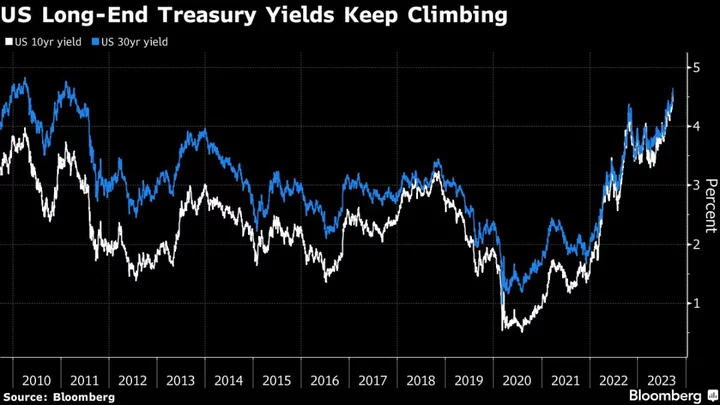
Asia Stocks Fall as Treasury Yields, Dollar Higher: Markets Wrap
Shares in Asia declined while Treasury yields and the dollar rose in a sign investors are yet to
2023-09-26 09:27
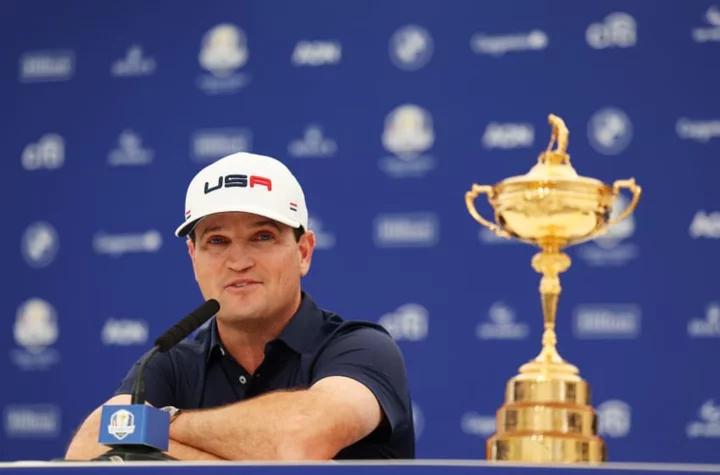
Ryder Cup 2023: Full schedule of events
The 2023 Ryder Cup will be the epicenter of golf with the United States looking to win on European soil. Here's the full schedule of events at Marco Simone for the Ryder Cup.
2023-09-26 07:49
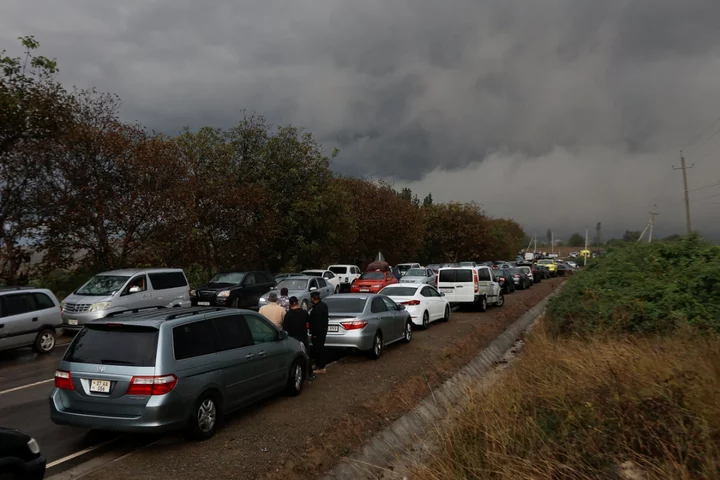
Thousands of ethnic Armenians flee Nagorno-Karabakh after Azerbaijan seizes control in lightning offensive
Thousands of ethnic Armenians fled Nagorno-Karabakh on Monday in lines of cars which stretched for kilometres, after Azerbaijan took control of the breakaway region sparking fears of persecution. Desperate residents of the main city sent videos showing families stocking up vehicles and sitting in tailbacks which have brought the mountainous road to Armenia to a standstill. They told The Independent people chose to leave fearing abuse at the hands of the Azerbaijani authorities and a burgeoning humanitarian crisis as food, fuel, gas and electricity were increasingly scarce following a 10-month blockade. The Azerbaijani military routed Armenian forces in a 24-hour blitz last week, forcing the authorities of the breakaway region to agree to lay down weapons. They also agreed to start talks on the “reintegration” of Nagorno-Karabakh, also known as Artsakh, into Azerbaijan, after three decades of separatist rule. Azerbaijan has pledged to respect the rights of ethnic Armenians and to restore the supply routes they cut in December. But Artak Beglaryan, a former adviser to the self-declared government of Artsakh, told The Independent that people fear reprisals and ethnic cleansing and so “almost all the villages” and large parts of the main city Stepanakert, which Azerbaijan calls Khankendi, “are emptying”. The leadership of Nagorno-Karabakh said in total nearly 7,000 people fled to Armenia on Monday alone. “They are fleeing because of the genocidal policy of Azerbaijan, the blockade, their aggression, and the failure of Russian peacekeepers to guarantee protection,” Mr Beglaryan added with desperation. “It is impossible to live under Azerbaijani subjugation. The Azerbaijani state and society is full of hatred of Armenians. “The international community is just looking at this and saying sorry. Nothing else is being done. We are frustrated with everyone. We are frustrated with humanity.” Siranush Sargsyan, a freelance Armenian journalist who also spoke to The Independent from Stepanakert, sent videos of lines of vehicles trying to escape. “I have never seen so many cars together, people are scared the roads will close and they won’t be able to leave so they are going now. And the other problem is food, it is hard to try to find something to eat,” she said. “Nobody wants to leave, we just want to have a life. If we know that we are protected we would stay but who is going to give us that guarantee?” She said the ethnic Armenians had suffered 10 months of “psychological terror” and starvation, because of Azerbaijan’s effective siege. Breaking down into tears, she accused the international community had prioritised their own economic interests over the lives of ethnic Armenians. “The whole world was silent because our lives were not as important as Azerbaijani gas. The world exchanged our lives for gas.” Both sides have been locked in a bloody battle over the mountainous Nagorno-Karabakh region since the collapse of the Soviet Union in the early 1990s. It is internationally recognised as part of Azerbaijan – which is backed by Turkey – but home to 120,000 ethnic Armenians who have enjoyed de facto independence since then. In 2020, a six-week war erupted during which nearly 7,000 people were killed as Azerbaijan reclaimed swathes of the region. Russia, historically a close ally of Armenia, brokered a truce and dispatched 2,000 peacekeepers. But in recent months Moscow has taken a step back since building stronger ties with Azerbaijan and Turkey after suffering crippling sanctions over its invasion of Ukraine. The world exchanged our lives for gas Siranush Sargsyan, a freelance Armenian journalist And so on Tuesday, the Russian-agreed true was broken by the Azerbaijan army who launched a 24-hour string of lightning strikes against the severely outnumbered and outgunned breakaway forces. The area had been struggling with a humanitarian crisis due to Azerbaijan’s blockade of the “Lachin Corridor” – the road connecting Nagorno-Karabakh to Armenia – piling on further pressure. Now thousands are on the move. Moscow said that Russian peacekeepers in Nagorno-Karabakh were assisting the evacuation. A second round of meetings between Azerbaijani officials and separatist representatives begin in Khojaly on Tuesday after the opening meeting last week. The international community has been quick to urge Baku to protect the ethnic Armenians. On Monday, the German government said Azerbaijan had a responsibility to protect rights. The day before, French president Emmanuel Macron pledged support for Armenia and Armenians, saying that France will mobilise food and medical aid for the population of Nagorno-Karabakh, and keep working towards a “sustainable peace” in the region. Meanwhile, the head of the US Agency for International Development, Samantha Power, visited Armenia on Monday to “affirm US support for Armenia’s sovereignty, independence, territorial integrity, and democracy and to help address humanitarian needs stemming from the recent violence in Nagorno-Karabakh”. She was joined by US Department of State acting assistant secretary for Europe and Eurasian affairs Yuri Kim. “The United States is deeply concerned about reports on the humanitarian conditions in Nagorno-Karabakh and calls for unimpeded access for international humanitarian organisations and commercial traffic,” USAid said. In an address to the nation on Sunday, Armenian prime minister Nikol Pashinyan said his government was working with international partners to protect the rights and security of Armenians in Nagorno-Karabakh. Mr Pashinyhan has faced growing calls for his resignation over what demonstrators have said is his failure to protect Armenians in Nagorno-Karabakh. Read More What is Nakhchivan? And after Nagorno-Karabakh, is this the next crisis for Azerbaijan and Armenia Thousands of Armenians flee Nagorno-Karabakh as Turkish president is set to visit Azerbaijan First refugees from Nagorno-Karabakh arrive in Armenia following Azerbaijan's military offensive What is Nakhchivan? And after Nagorno-Karabakh, is this the next crisis for Azerbaijan and Armenia First refugees from Nagorno-Karabakh arrive in Armenia following Azerbaijan's military offensive Aid shipments and evacuations as Azerbaijan reasserts control over breakaway province Azerbaijan send in food supplies to Nagorno-Karabakh after warning of humanitarian catastrophe Azerbaijan send in food supplies to Nagorno-Karabakh after warning of humanitarian catastrophe Stones thrown as Armenian protesters clash with police after ceasefire
2023-09-26 06:46
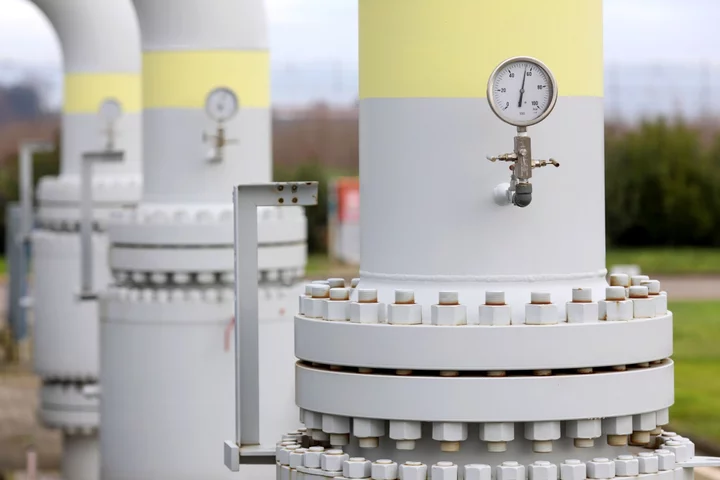
Italy Set to Approve Energy Aid Package Worth Over $532 Million
The cabinet of Italian Prime Minister Giorgia Meloni approved a fiscal aid package worth about €1.3 billion ($1.4
2023-09-26 01:46
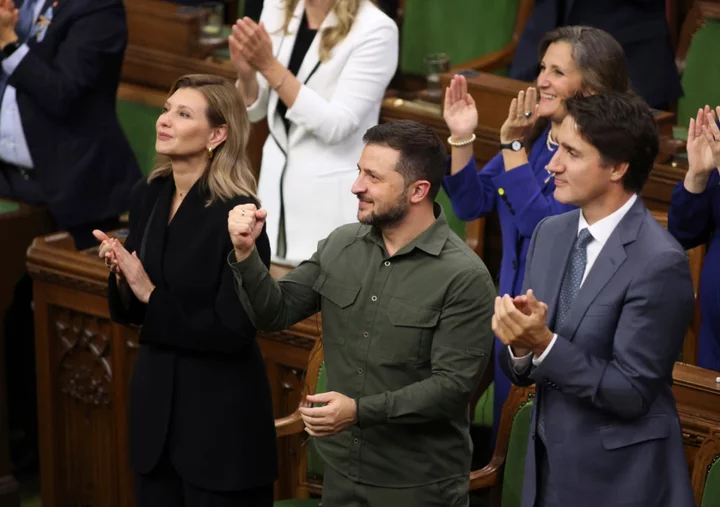
Canadian parliament accidentally honours Nazi - with Zelensky and Trudeau applauding
Canada’s House of Commons gave a rousing standing ovation to a Ukrainian veteran who fought in the Second World War – unaware he had served in a Nazi SS unit. Yaroslav Hunka, 98, was sitting in the gallery when he was described as a “Ukrainian hero” and a “Canadian hero” to applause from prime minister Justin Trudeau and president Volodymyr Zelensky. However, leaders were left red face when house speaker Anthony Rota subsequently apologised after it emerged that Hunka served in the 14th Waffen-SS Grenadier Division, a voluntary unit made up mostly of ethnic Ukrainians under Nazi command. In a statement, Mr Rota said that on 22 September “in my remarks following the address of the president of Ukraine, I recognised an individual in the gallery. “I have subsequently become aware of more information which causes me to regret my decision to do so.” Mr Rota said that “no one, including fellow parliamentarians and the Ukraine delegation, was aware of my intention or of my remarks before I delivered them. This initiative was entirely my own, the individual in question being from my riding [district] and having been brought to my attention.” “I particularly want to extend my deepest apologies to Jewish communities in Canada and around the world. I accept full responsibility for my actions,” the speaker said. The Canadian Jewish group CIJA said it was “deeply troubled” that a Nazi veteran had been celebrated, and said “proper vetting is imperative to ensure such an unacceptable incident does not occur again”. The incident came shortly after Mr Zelensky delivered a passionate speech to the Canadian parliament to bolster support from his Western allies. Mr Rota then hailed Mr Hunka as “a Ukrainian Canadian war veteran from the Second World War who fought for Ukrainian independence against the Russians” and “a Ukrainian hero and a Canadian hero.” Following the address, Mr Zelensky, who is Jewish and lost family members during the Holocaust, raised his fist in acknowledgement as the veteran saluted. Mr Hunka’s Nazi unit are accused of killing Polish and Jewish civilians, and were visited by SS leader Heinrich Himmler in 1944 who said his men would be “eager” to “liquidate the Poles”. The Friends of Simon Wiesenthal Center said that Mr Rota's remarks ignore “the horrific fact that Hunka served in the 14th Waffen Grenadier Division of the SS, a Nazi military unit whose crimes against humanity during the Holocaust are well-documented.” Since his invasion in February 2022, Russian president Vladimir Putin has repeatedly made unsubstantiatec alims that Ukraine of ‘harbours neo-Nazis’. Read More Putin gives defence chief one month deadline to stop Ukrainian counteroffensive in its tracks Russian airstrikes kill 2 and wound 3 in southern Ukraine as war enters 20th month Russian foreign minister lambastes the West but barely mentions Ukraine in UN speech Trudeau and Zelensky give Ukrainian Nazi war veteran standing ovation in parliament We have a responsibility to defend our citizens, says Canada’s defence minister Leader of Canada's House of Commons apologizes for honoring man who fought for Nazis
2023-09-25 21:15
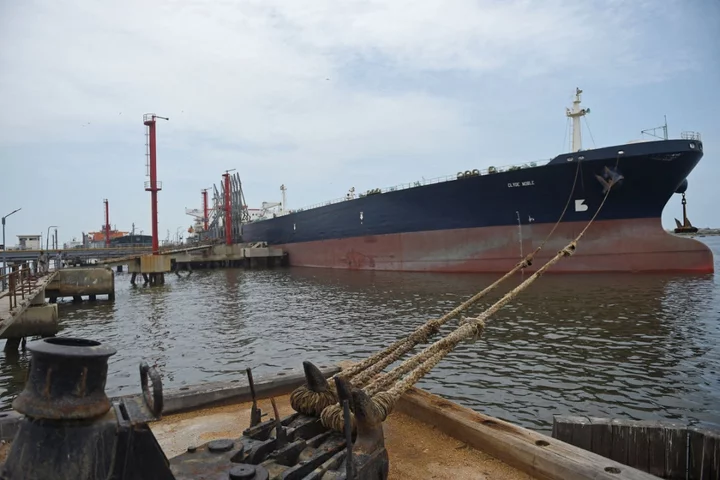
Russian oil supplies continue to spike despite G7 price cap sanctions, data shows
Russian crude oil supply surged 50 per cent this spring despite sanctions imposed by the G7 countries in the backdrop of continuing war in Ukraine, data from commodities tracker and analytics company Kpler showed. An analysis of shipping and insurance records from August showed almost three-quarters of all seaborne Russian crude flows travelled without any western insurance in August, reported the Financial Times. The move was a lever enacted by the G7 nations, the European Union and Australia which imposed a $60-a-barrel price cap last December as the coalition looked to restrict Russia’s ability to finance its invasion of Ukraine. The significant surge confirms Russia’s ability to dodge the cap imposed by Western nations and continue to sell more of its oil at prices competing with international market rates. Russia’s oil revenues are, however, likely to go up due to constant increases in crude prices and a reduction in the discount on its own oil, estimates by the Kyiv School of Economics showed. Russia cut its seaborne diesel and gasoil exports by nearly 30 per cent to about 1.7 million metric tons in the first 20 days of September from the same time in August. Russia’s temporary ban on exports of gasoline and diesel to most countries, announced last week, was expected to further tighten supplies. In April this year, Russian crude oil exports reached back above to levels seen before Vladimir Putin’s Ukraine invasion, despite the ratcheting up of Western sanctions. India and China accounted for 90 per cent of Russia’s seaborne crude oil exports, according to figures by Kpler. The Asian giants are each buying an average of 1.5 million barrels per day (bpd), absorbing the shortfall in exports to European nations that previously accounted for two-thirds of Russian crude. But in August, India’s import of Russian oil dipped to a seven-month low after steady purchase during the course of the war, amid lower discounts for Moscow’s grades and planned maintenance outages at some plants. Since Russia’s full scale war, India had steadily increased its purchases of discounted Russian oil. Indian imports of Russian oil hit a record high in October, with the country becoming India’s top oil supplier in terms of bpd. Despite Western sanctions designed to stop funds reaching Mr Putin’s war chest following his Ukraine invasion, Russia’s crude oil exports have actually risen from 3.35 million bpd in 2022 to 3.5 million bpd in the first quarter of 2023, Kpler said. After India and China, the two largest buyers of Russian crude are now Turkey and Bulgaria. Read More ‘Panic’ grips Putin’s military and milbloggers over Ukraine’s advances on battlefield Ukraine-Russia war – live: ‘Panic’ among Putin’s troops as they ‘face threat of encirclement’ in Verbove Russia strikes Odesa, damaging port, grain infrastructure and abandoned hotel Oil prices have risen. That's making gas more expensive for US drivers and helping Russia's war France's Macron to unveil latest plan for meeting climate-related commitments in the coming years
2023-09-25 20:15
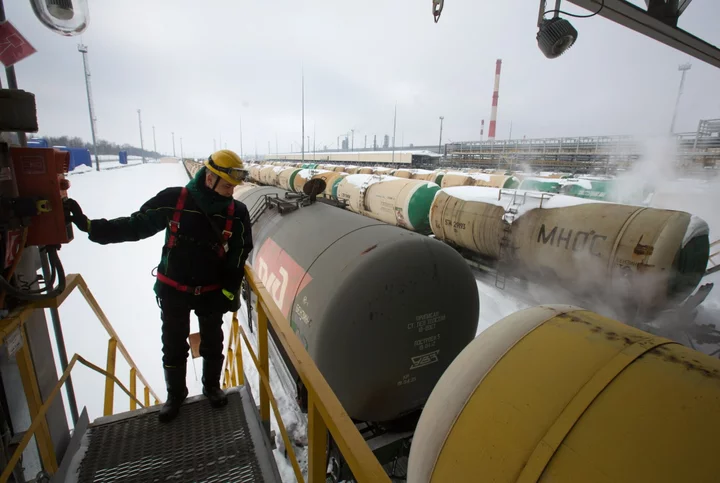
Russia Exempts Gasoils, Bunker Fuel From Export Ban
Russia’s government has amended its fuel-export ban, excluding bunker fuel, gasoils and some middle distillates from the export
2023-09-25 17:58
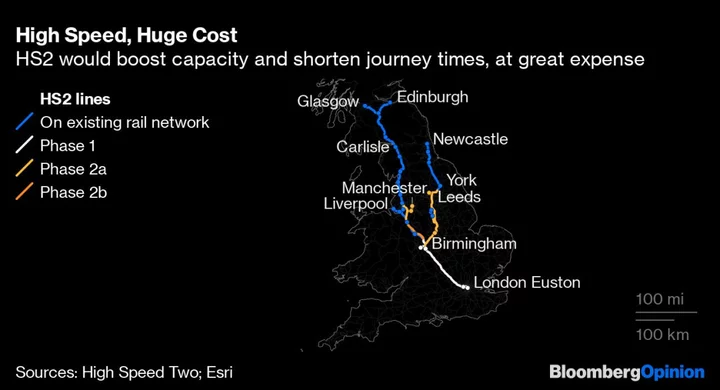
Anger Builds as Sunak Mulls Shortening Flagship UK Rail Link
Rishi Sunak faced anger from UK business leaders, politicians across the spectrum and even a major donor as
2023-09-25 17:57
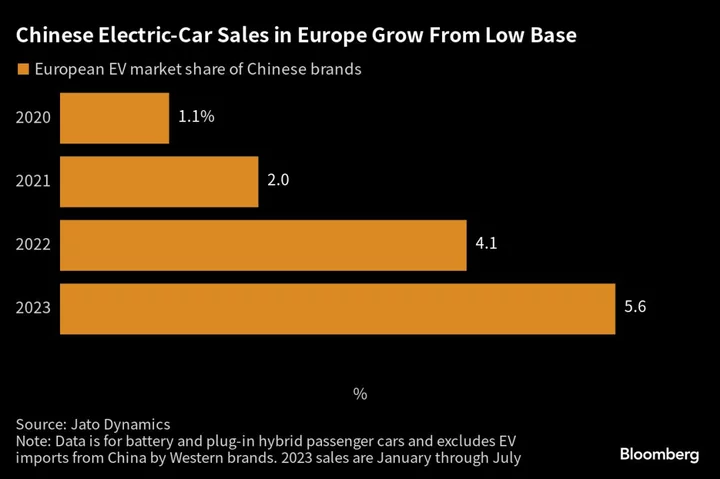
Chinese EV Maker Zeekr Sweeps Into Europe Amid Subsidy Spat
Electric-car maker Zeekr is banking on extra momentum from sister brands like Volvo Car AB to push into
2023-09-25 17:50
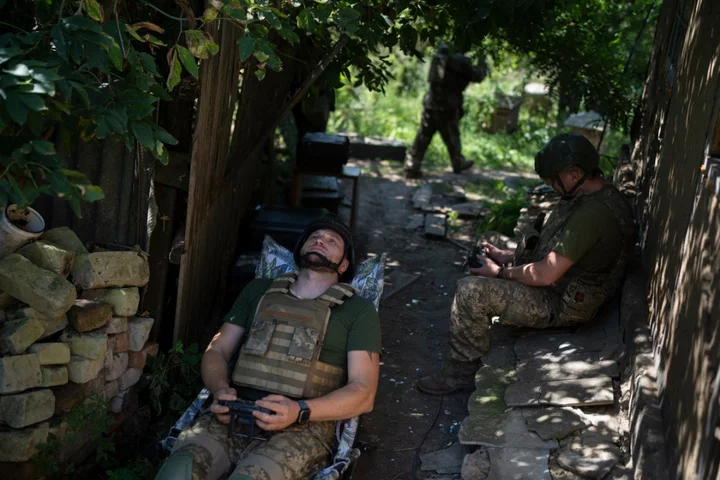
Putin wants Ukrainian counteroffensive halted before early October, report says
Vladimir Putin wants the Ukrainian counteroffensive halted by early October and has instructed Russia’s defence minister Sergei Shoigu to improve the situation, according to a Kremlin insider cited by a US-based think-tank monitoring the war. “Putin reportedly gave Russian defence minister Sergei Shoigu a deadline of one month until early October 2023 to improve the situation on the frontlines, stop Ukrainian counteroffensives, and have Russian forces regain the initiative to launch an offensive operation against a larger city,” the Institute for the Study of War (ISW) said in an intelligence update on Sunday. It said the Russian military command is likely ordering relentless attacks with the hope of forcing the Ukrainian counteroffensive to culminate, even at a high cost to Russian military capabilities, if the claims are true. The ISW said it has previously seen situations wherein the Russian defence ministry, “fearing the imminent loss of Putin’s favour”, has amped up its efforts to purge commanders offering honest but negative views. Russia launched what it called a “special military operation” in Ukraine in February last year, bringing its neighbour under a full-scale invasion and causing thousands of deaths and displacing millions. Mr Putin had first acknowledged the Ukrainian counteroffensive in June this year and claimed that the war-hit nation’s troops will not make significant gains against the strong Russian defences. He had also claimed Ukrainian troops would suffer heavy losses of personnel and western military equipment. But the initiative in which Kyiv is looking to push back all Russian forces from Ukraine’s territory, including the occupied areas, is now well into its fourth month and has registered some important territorial gains this month. President Volodymyr Zelensky has acknowledged the counteroffensive was slow, but added that is was “important that we are moving forward every day and liberating territory”. A study by the Royal United Services Institute, a London-based think-tank, found Ukrainian forces average 700-1,200m of progress every five days. That gives Russian forces time to dig in and especially to mine territory as they pull back. The 3rd Assault Brigade, composed entirely of volunteers and considered one of Ukraine’s best and most experienced corps, has been fighting almost nonstop in the east since January, while less-experienced units received new training and modern weapons to fight in the south. Read More ‘Panic’ grips Putin’s military and milbloggers over Ukraine’s advances on battlefield Ukraine-Russia war – live: ‘Panic’ among Putin’s troops as they ‘face threat of encirclement’ in Verbove Drones attack Black Sea, Crimea and parts of Russia where thousands suffered power cuts Russia ‘weaponised food and deliberately caused starvation’ in Ukraine Ukraine is building an advanced army of drones. For now, pilots improvise with duct tape and bombs
2023-09-25 16:53
